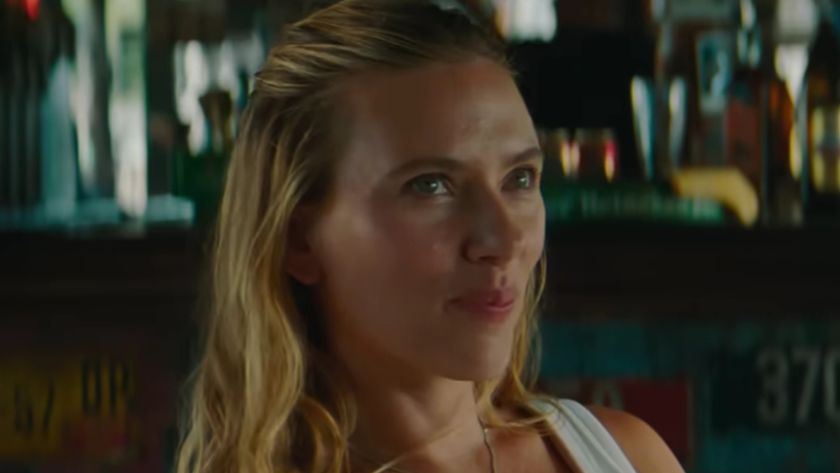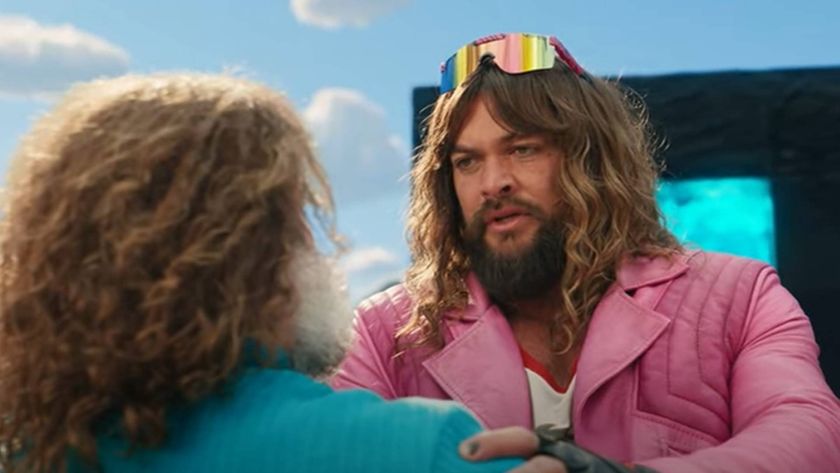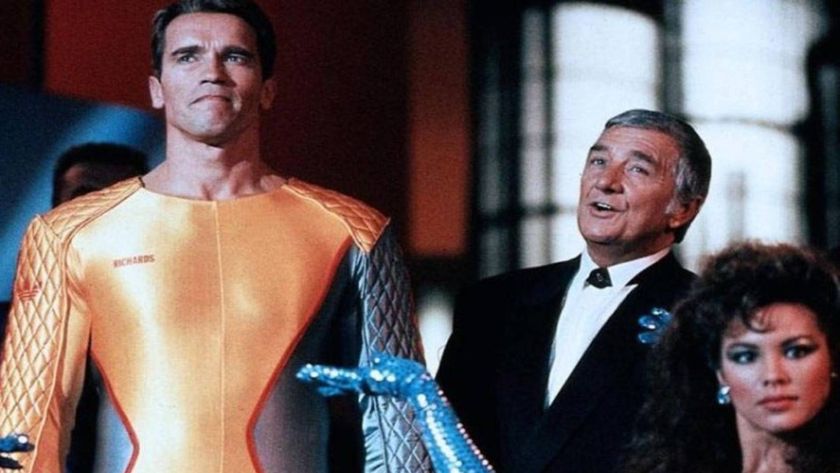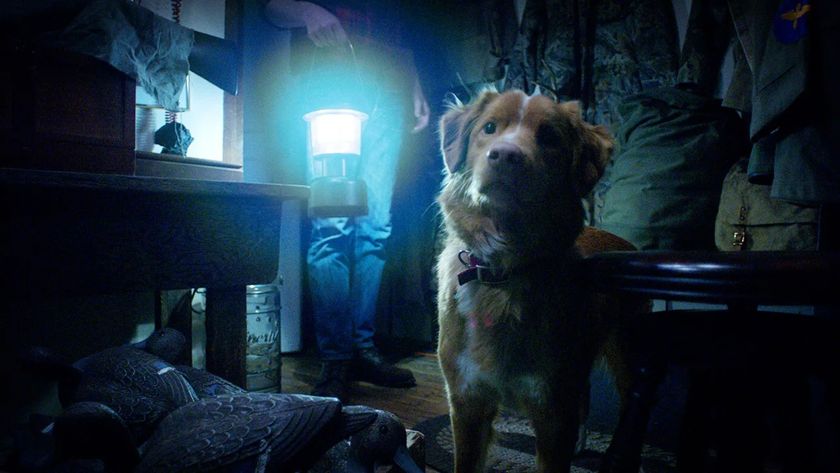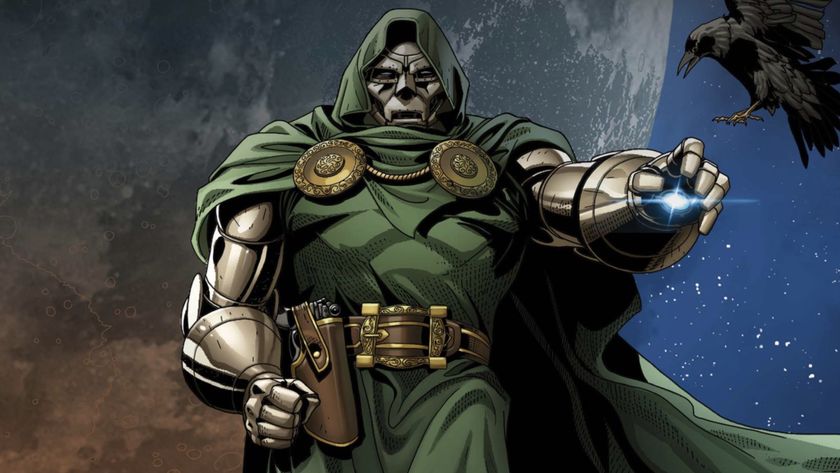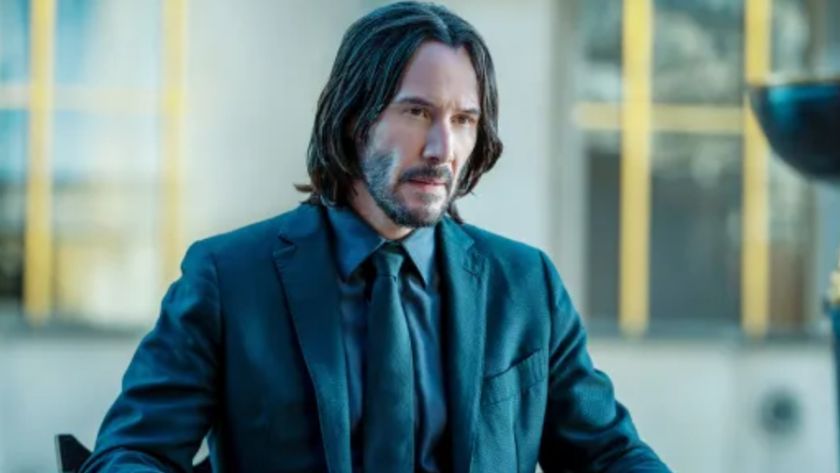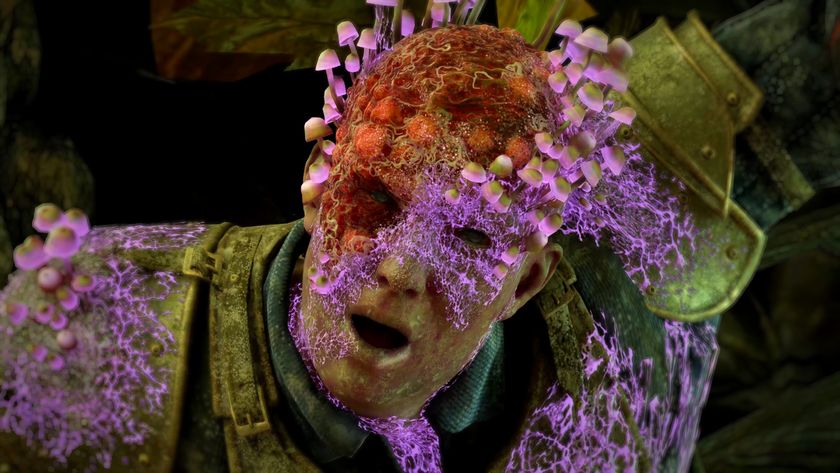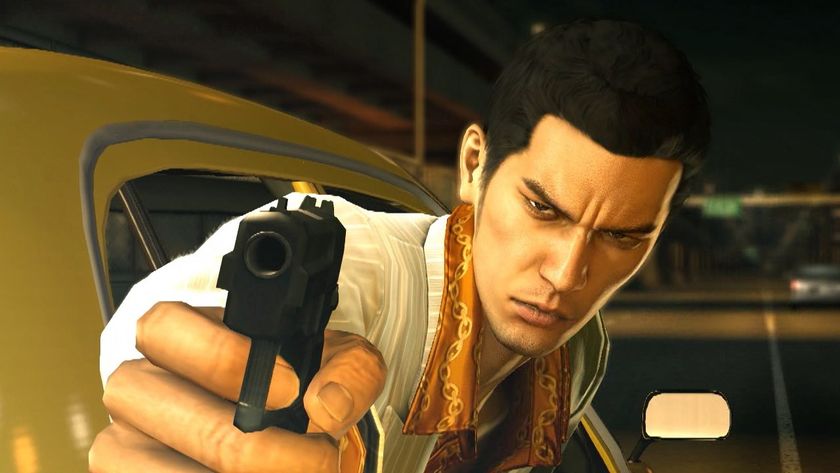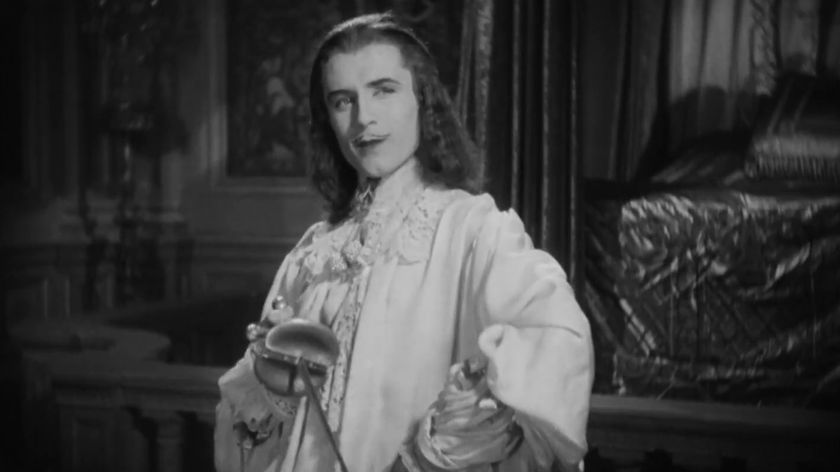Eric Bana Q&A
Eric Bana digs deep for Steven Spielberg's intense revenge drama Munich
Apparently Steven Spielberg was very interested in you after seeing Hulk, which is an interesting connection. He felt there was that mixture of sensitivity and pent up fury. Did he tell you that when you were first approached for the job?
He didn’t. I didn’t dare ask him as to why he was interested in me in case he changed his mind. So I never wanted to know.
The process of getting the role of Avner, was it a long one? He said you were the first choice, but they often say that and then go round the houses. How long did it take between being approached and actually signing on the dotted line?
It was pretty immediate. I remember everything - he explained the subject matter, explained the premise of the film, explained the central characters and told me he wanted me to play the role of Avner. I asked him if he’d taken any drugs, he said no. And then I got the script a very short time after that and was, you know, obviously signed on.
And the whole process was actually pretty quick?
It was very quick. I mean it was quick in terms of how long it took me to be involved. But I think it was close to two years before we then started working on the film.
The film has drawn some flack from predictable and less predictable quarters. Do you believe that because it’s coming from both sides that the correct balance has been struck?
Yeah. I think it’s a pretty healthy sign, most definitely. I mean, there’s no way you’re ever going to get a whole bunch of people to sign off on what actually happened. No one’s gonna get that document. So in the end we’re having to deal with some indisputable facts and some poetic licence. I guess I trust that we’ve achieved a pretty good balance. I mean there’s a bunch of facts that just aren’t in dispute. Eleven athletes were slaughtered, there was a response, as a result a bunch of terrorists were assassinated. They are indisputable facts. How you join the dots – whether they were driving a brown car or a yellow car, using a bomb or a gun or whatever – those facts don’t change the central themes and moral complexities of the film. So a lot of the stuff you’re talking about was very predictable, I think a healthy sign that the film set out to achieve what Steven wanted it to do.
Was your accent hard to master and did you get a lot of rehearsal time with your co-stars – particularly the woman who plays your wife?
Not a lot of rehearsal time, but a lot of preparation time. As I said, I had nearly two years to get ready. The Israeli accent wasn’t one that I was overly familiar with so I had to learn from scratch. But as I say I was very fortunate that I had the right amount of time.
How much research did you have to do into the events? How much of the history were you aware of beforehand?
It was a balance. I mean, some of it I was aware of just through history and so forth, but nowhere near aware enough to play the role of Avner, so luckily I had the right amount of time. But the thing that was important to me, playing an Israeli in such a sensitive environment, was being better equipped with the history of the region. Growing up in Australia, Middle Eastern politics and history is not something we study at school. So that was the area I really wanted to concentrate on. It was important to me personally because I felt it was going to affect the character. Then there’s obviously a lot of other stuff based on historical facts, and you have to essentially come up with a character in your head. But I think the more you know, the more it helps affect the final outcome.
Avner exists – he’s around still. Did he come into the equation at all?
I was able to meet with him, and he was very generous to me and it was extremely beneficial. There’s no doubt you always can bring some things that aren’t on the page, or not expressed, you know, things he might say or things he might not say. In the end, like I say, you can never have too much. You can never have too much information, you can never have too many thoughts, you can never have too many instincts. It all sits in your subconscious and affects the character in the end. So being able to meet with him was very, very interesting.
Any physical resemblance?
Not really, no.
It looked like a very physically and emotionally draining film to make. What toll did it take on you?
It was. I think any time you take on a character like that… I don’t like to come at my characters from a really technical place. In the end you have a bunch of skills that you learn over time, but I always find that 90 percent of the performance for me comes from inside you. And I’m not really interested in manufacturing those things. They have to be very real, so it’s about finding those places. The character was taxing but also very rewarding. Steven has an incredible working environment, especially in this case. We were shooting, I think, a 170-page script in three months, which, for him, is not unusual. It’s kinda what he always does, but not everyone works at that pace. The beauty of that for me was that I was able to get into a zone and maintain that zone for the duration of the film. And he approaches it with such energy that it really kept me going, there’s no doubt. I was very depressed at the end of the film that we’d actually finished and it was all coming to an end because it was just the most incredible experience. He works with an unbelievable crew of people – his crew he works with on just about every movie. They’re like a football team, and you arrive and you feel like you’d better step up to the job because you’re on the field with the greatest team in filmmaking, arguably, because they just work together all the time.
You’ve worked with two of the world’s greatest filmmakers. How would you compare the experience of being directed by Steven Spielberg and Ang Lee?
I’m so glad you said which ones you were talking about because I wouldn’t have been able to pick them. They’re obviously both incredibly diverse in the types of films they’ve made. They couldn’t be more different to work with. Steven is just completely different with the actors than Ang. Ang is far more in his world and not as engaged with the actors on a day-to-day basis. He’s obviously very meticulous and equally as brilliant. They just work differently. Steven is a little bit more of an audience member and gives more feedback and is extremely enthusiastic by the monitor, which is wonderful.
It was a very cosmopolitan cast, and because you’re playing a team, and with the lack of rehearsal time you usually have on a movie, did you get much time to actually get together?
We had a lot of time because we were shooting most of our stuff together. We did hang out together, we were all away from home, on location, which is always great. I mean it always infuses a production with a different energy and especially in this case, working on this subject matter in this film, it was a very, very close-knit zone. My immediate team, Ciaran Hinds, Daniel Craig, Mathieu Kassovitz and Hanns Zischler, we were very close and spent most evenings together – they were really, obviously, a great bunch of actors. Geoffrey Rush, it was an exceptional thrill for me, because he’s from the same city as me – Melbourne – and we know of each other, and had met vaguely. We got to know each other actually through international flights between Melbourne and Los Angeles over the years, and we’d sit down and talk and drink and eat together and that’s been the basis of our relationship. When Steven told me he was going after Geoffrey for the role of Ephraim I was really excited and thrilled that he took the part on. In some ways it kind of reminded me of our own lives, in that our characters through the course of the film come together for these moments and then disappear and reappear. It kind of feels like Geoffrey and I in real life – we kind of have that thing going.
What’s your own opinion about the Israeli response to the Munich massacre, was it justified or not?
That’s a tough one. It’s a couple of things. It’s really idealistic, I think, in some ways to say that you shouldn’t respond to a response, but it’s obviously going to be different in every set of circumstances. If you come up here and punch me, I’m gonna want to punch you back. So it is a very challenging notion and the film and real life is right now dealing with that complex issue and how people respond to it is going to be very individual.
Did Spielberg ever talk to you about how he saw the context of the story, and, in a sense, what his take was on it?
Yeah, we were so into what we were shooting on a day-to-day basis. I always knew that this was a very, very passionate project for Steven and one that was very close to his heart and he felt very strongly about. But it was obviously very important that the film be balanced and challenging. And I think that was kind of a priority. On a day-to-day basis we never really spoke in broad brushstrokes about ‘this is the tableau of the film, this is where it’s going to end up, this is exactly what it’s going to be.’ He’s very instinctual and, on a daily basis, was just responding to what was occurring on set, and was never really completely set in his mind about what these scenes were, they would kind of evolve in front of him and he was constantly changing and adapting to it. It was very exciting to work in that environment, you never felt like you’d arrive at the beginning of the day and ‘this is what this scene is, this is what it’s going to be, this is the point where your character’s going to change.’ It was never that, you had loose discussions, and whilst you were organically working your way through the scene he would suddenly go, “You know what, this is not the right place for us to be doing this, let’s change this. In fact the scene that’s written to come after this, it’s gone now, I’m not even going to shoot it, because this scene does that.” And he’s very, very reactional, he’s not at all set in his ways and he’s constantly evolving his thoughts and so forth. So, when you’re working on his film it feels like a very organic, live beast. It’s really amazing.
Do you agree with the message of the film?
I think the message of the film is different for whoever sees it. Do I agree wholeheartedly with what Steven has made? I couldn’t be more proud of the film and couldn’t be more excited to have been associated with everything Steven has done associated with this movie.
While you were filming there were doubtless certain things going on in Israel. Did that affect the atmosphere on set? Was there extra poignancy doing the film 30 years after the events took place?
There were a lot of moments, we were filming whilst the London bombings were occurring and that was obviously very poignant because we had a predominantly British crew. It gets to a point though when you’re so consumed by what you’re doing on a daily basis that you really almost can’t afford to take on what’s occurring in the outside world. That may sound incredibly naïve, but you would not have the movie you have if we were distracted by events that were occurring outside the confines of our sets every day. So, me personally, no you can’t take it on, you can’t consider it. You have flashes or moments when you occasionally catch a bit of the news at night and you think ‘oh my god look what’s happened.’ But that only, I think, spurs you on, gives you energy, makes you realise that if you’re lucky enough to be involved in a film that’s about something very real, and a film that you hope in five, ten, 20 years time is still going to hold up, it just gives you more energy and makes it feel more worthwhile.
The film deals very much with the emotional impact on Avner. Did the role live on with you afterwards? And how difficult was that scene where you make love to your wife while flashbacks to the terrorist killings are going through your head?
There were at least a dozen really difficult scenes in the film. It’s essentially what you live for as an actor. Yes, the character did stay with me. He’s still with me today. It does take a long time to shake them off. The deeper they go inside you, the harder it is to get rid of them. And what I mean by that is it’s an actual physical thing. If you’re playing a character that has his senses so raw, you’ll end up in a place personally similar. I’m not saying you carry the character to the point where you’re a pain in the ass to everyone around you. You maintain that zone in your head so I became extremely anxious, I didn’t get a whole lot of sleep during the making of the film, I didn’t seem to need it, it didn’t seem important. You just fundamentally change as a person, you just get to a place where you’re very raw. So it does take a while to change, because you get home and you pick up the kids from school and you just forget what time of the day his school finishes and it’s been the same time for the last three years but you can’t keep that information in your head because that’s the part of your brain that you’ve been actively employing for the last six to 12 months. There were a load of difficult scenes. The one you mentioned – in some ways it was difficult and in some ways it wasn’t at all. It was one of the easiest scenes for me. I wasn’t the least bit concerned about it or perturbed by it, I felt it was a very brave scene. I think it’s just another example of how great Steven is as a filmmaker. I thought it was an incredibly touching scene. You had a man who was finally home, finally back with his wife, in the most intimate of scenes, and he cannot exorcise the events from his mind, he has not found peace, he has not found any closure, he has not been able to get the memories of what happened out of his mind. To me the most powerful part of that scene was the reaction of my wife at the end of it. That’s what that scene was about.
Sign up for the Total Film Newsletter
Bringing all the latest movie news, features, and reviews to your inbox
The Total Film team are made up of the finest minds in all of film journalism. They are: Editor Jane Crowther, Deputy Editor Matt Maytum, Reviews Ed Matthew Leyland, News Editor Jordan Farley, and Online Editor Emily Murray. Expect exclusive news, reviews, features, and more from the team behind the smarter movie magazine.
